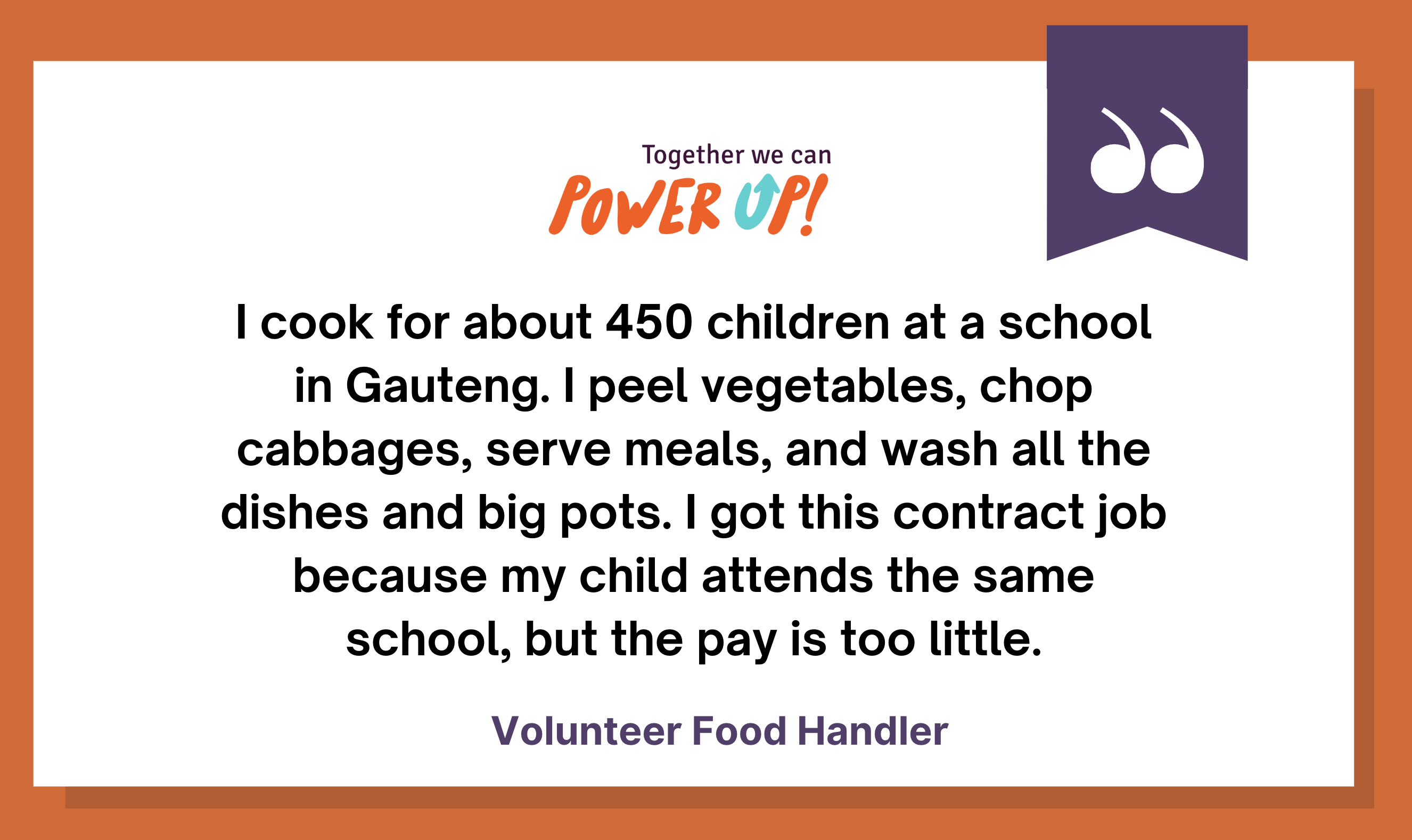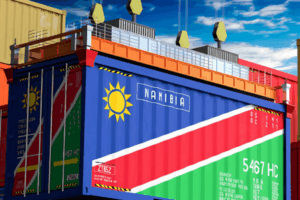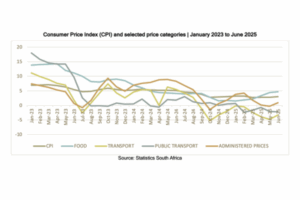Thabisile Miya, Coordinator at Amandla.mobi, shares her journey in digital activism, promoting economic justice, rights, and dignity for society’s most vulnerable.
Please share a personal anecdote, experience, or campaign that has significantly influenced your activism.
I first became interested in digital media advocacy when I encountered a petition to remove the value-added tax (VAT) on sanitary towels. The idea that many young girls and women still struggle with accessing sanitary towels struck a nerve. We cannot eliminate period poverty by just providing free sanitary towels. The lack of access to running water further deepens the problem. This campaign did a lot to destigmatize menstrual periods. It was powerful to see the giant pad created by the Amandla.mobi team and placed at parliament during hearings. Even if you could afford to buy period products, there was a sense of relief when the price drop trickled down.
How are you advocating for bridging the digital divide, which is crucial for effective mobile advocacy?
We are addressing the digital divide both internally and externally. The Data Must Fall campaign was crucial in pressuring mobile network providers to lower data costs to make it more accessible. When data is affordable, more people can participate in mobile advocacy. At Amandla.mobi, we use accessible means to make this process easier. We use mediums like USSD and WhatsApp to send campaign information to members, usually at little to no cost to them. The Data Must Fall campaign was a plea to address the digital divide. By reducing the cost of data bundles by 30% to 50%, network providers improved mobile access for many South Africans.
Which campaign has had the greatest impact so far?
There have been many impactful campaigns, but I would emphasise the request to expand and transform the R350 grant into a basic income grant. I was involved in this campaign from the start. The Relief of Distress (SRD) grant was introduced in 2020 at the peak of the COVID pandemic to assist those who could not put food on the table as the country was in lockdown. The grant’s uptake showed the government needs to do more to assist households. The first iteration excluded many caregivers, especially those receiving the Child Support Grant. This campaign demonstrated the power of collective action. We live in a country where the majority of the people benefit from some welfare measures, where there is a possibility that one might reach the age of 30 without ever having worked a formal job due to unequal access to opportunities. The stories shared by members during our engagement with the Department of Social Development, Treasury, and the Presidency highlighted the multilayered nature of poverty and its impact from birth to adulthood. Without interventions like the child support grant, certain dignities can’t be maintained. This campaign showed decision-makers the importance of welfare measures in reducing poverty while contributing to the economy.
How does Amandla.mobi highlight women's issues, especially valuing care work and addressing gender roles?
Addressing care work is essential, as gender disparities still manifest, especially within the care economy. We believe that improving the life of a black woman improves the lives of everyone else. We ran a campaign against Sweep South for underpaying and exploiting domestic workers. In a country with high unemployment, it’s easy for the vulnerable to be exploited. Sweep South paid only R25 per hour to domestic workers on the app. This meant that for a full day’s work, workers earned as little as R50, which many accepted because it seemed ‘better than nothing’. They had to cover data costs and transport to their jobs without benefits like sick or annual leave. As of 2024, Sweep South still underpays workers despite the instruction to comply with the national minimum wage.
We also advocate for gender-responsive budgeting through submissions to parliament opposing austerity measures. This year, our submission represented voices supporting the call for an increase in the Social Relief of Distress Grant (SRD grant) and the introduction of a Basic Income Grant. We played voice notes from those most impacted by cuts to social spending, many of whom are low-income black women.
Tell us about your recent petition demanding the national minimum wage for Volunteer Food Handlers in the National School Nutrition Programme.
Tell the departments of Social Development and Basic Education to pay Volunteer Food Handlers the minimum wage petition emphasises the importance of care work and women’s role in the nourishment and nutrition of school children. Unemployment is a top issue among our members discussing the problems we can address. While government interventions exist, they are often insufficient or unsustainable. This campaign, along with the Youth Capital campaign for preserving the contracts under the Presidential Youth Employment, pressures the government to find dignified and sustainable solutions to our unemployment crisis instead of resorting to exploitation. Furthermore and in addition to highlighting the importance of care work, in our engagement with decision-makers like treasury and finance committees, we stress that their decisions must consider the different contexts of men and women and how our socio-economic contexts affect us differently.
By adding your name, you are part of a proud history of workers standing up – and standing together – to insist that care work is the bedrock of our economy, that recognising Volunteer Food Handlers as workers with the right to decent work is crucial to valuing care work in our society.
What does digital activism mean to you, both generally and in the context of Women's Month? What advice would you offer young women seeking to be change-makers in their communities?
Digital activism means using the tools at my disposal, like social media, to demand a more just South Africa, especially for women from low-income backgrounds. I am privileged to use my position at work to pursue this. As a small community organisation, we use petitions and social media platforms like WhatsApp to gather public support for policy changes to reduce inequality. Digital activism bridges the gap for those who lack access to challenge power and hold the government accountable.
During Women’s Month, digital activism shows the impact of collective power. I am here because of the women who paved the way. Without them, I wouldn’t believe in a more equal and just South Africa where women are safe and have access to economic opportunities. We must strive for this.
To young women seeking to be change-makers, it’s important to remember that it’s not easy, but all it takes is for one person to believe in your idea. In a country with some of the highest rates of inequality, where black women are most impacted, we must use our agency to demand a more equitable world. We already have the tools and resources to do so.








